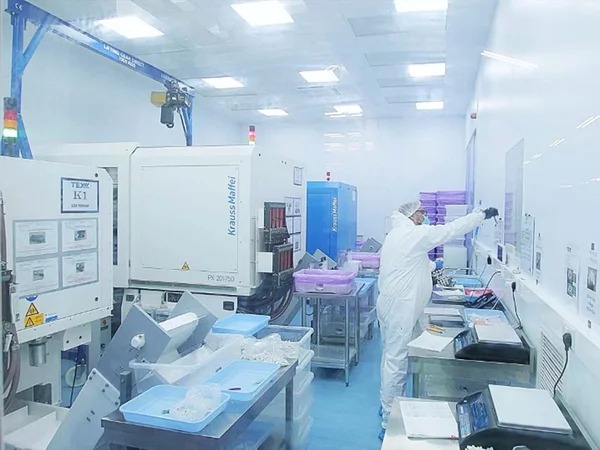Starting Fresh: How To Rebuild Your Life After Drug Addiction
Overcoming drug addiction is a monumental achievement that marks the beginning of a new chapter in life. It’s an opportunity to rebuild, restore and renew one’s purpose and direction. Recovery is not a destination but a continuous journey that unfolds one day at a time, often requiring a complete lifestyle change. For those who have fought bravely against addiction, the road to rebuilding life holds many lessons, challenges, and victories. Keep reading to discover the building blocks for a rewarding post-addiction life.
Understanding the Journey of Recovery: Embracing a New Start
Recovery from addiction is a complex journey with challenges and triumphs along the way. Detox and medical treatment are just the first steps, as the real work begins in rebuilding a drug-free life. Patience, persistence, and self-compassion are crucial during this phase. Therapy and self-awareness help individuals understand their triggers and develop coping mechanisms to avoid relapse.
Looking ahead with optimism is key. Reconnecting with loved ones, pursuing new careers, or exploring passions gives people the chance to write a new chapter. Support from organizations like prospecthillrecovery.com can make the process easier, ensuring no one goes it alone. For those seeking stability, RTM homes Saskatchewan could offer a fresh start in a new environment.
Building a Support System: Surround Yourself with Positivity
Recovery from drug addiction requires a strong support system of friends, family, and peers who understand the journey. These relationships offer encouragement, understanding, and accountability, reinforcing one’s commitment to sobriety and providing a sense of belonging. Participating in sobriety-focused groups or 12-step programs can enhance the recovery experience.
Family therapy can help rebuild trust and mend damaged relationships. Involving loved ones in the recovery process fosters understanding and shared responsibility. While forming new relationships, it may be necessary to alter or sever ties with friends or activities associated with past substance use to maintain a healthy environment conducive to ongoing recovery.
Setting Goals and Celebrating Milestones in Sobriety
Realistic goal setting is a crucial aspect of recovery, focusing on the future rather than the past. Short-term and long-term goals provide immediate targets, while celebrations of milestones, such as a month or year of sobriety, serve as reminders of progress and commitment. Recognition and reward for these achievements boost morale and reinforce positive behavior. Milestones also provide opportunities for reflection, allowing individuals to identify effective strategies and areas that need improvement.
Reflection can reinvigorate determination to stay on the path of recovery. Professional assistance for goal setting and achievement tracking can be beneficial, as many treatment centers offer aftercare programs to help individuals establish and reach their post-recovery ambitions. Realistic goal setting and celebration are essential tools in the recovery process.
Developing Healthy Routines: Nutrition, Exercise, and Mindfulness
Addiction can significantly impact one’s physical and mental health, necessitating the development of healthy routines for recovery. Good nutrition aids in body repair and energy improvement, while regular exercise releases endorphins, boosting mood and reducing stress.
Mindfulness practices like meditation, yoga, and deep-breathing exercises enhance self-awareness and emotional regulation. Establishing a regular sleep schedule improves cognitive function and emotional resilience, crucial for those navigating life after addiction. Cultivating new hobbies or reviving old interests can contribute to a balanced lifestyle, providing a sense of accomplishment and joy lost during substance use.
Giving Back: Finding Purpose Through Helping Others
After overcoming addiction, individuals often find a renewed sense of purpose by helping others on their recovery journey. This can be achieved through mentoring, volunteering with support groups, or participating in community outreach programs. This reciprocal support strengthens the recovery community and enhances one’s dedication to staying drug-free. Teaching and guiding others through their struggles can serve as a reminder of their accomplishments and the importance of maintaining sobriety.
Engaging in altruistic acts can lead to a more fulfilling life post-addiction, as it fills the void left by drugs. Individuals in recovery can become involved with organizations focused on addiction recovery and prevention, shaping policies and attitudes towards addiction, thereby enhancing societal understanding and support.
Altogether, rebuilding life after addiction is an intricate process that requires dedication, hope, and community. Recognizing the importance of a strong support system, setting and celebrating personal milestones, creating healthy routines, and finding purpose through service to others are the pillars of a successful and rewarding journey in recovery. It’s a path that promises not just a return to normalcy but an opportunity to forge a meaningful and vibrant existence.
Keep an eye for more news & updates on Well Known Figure!






